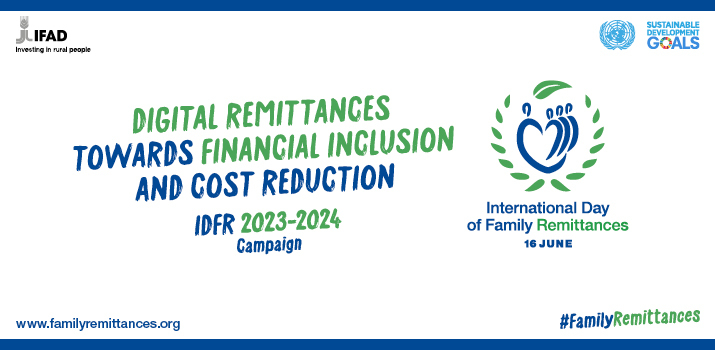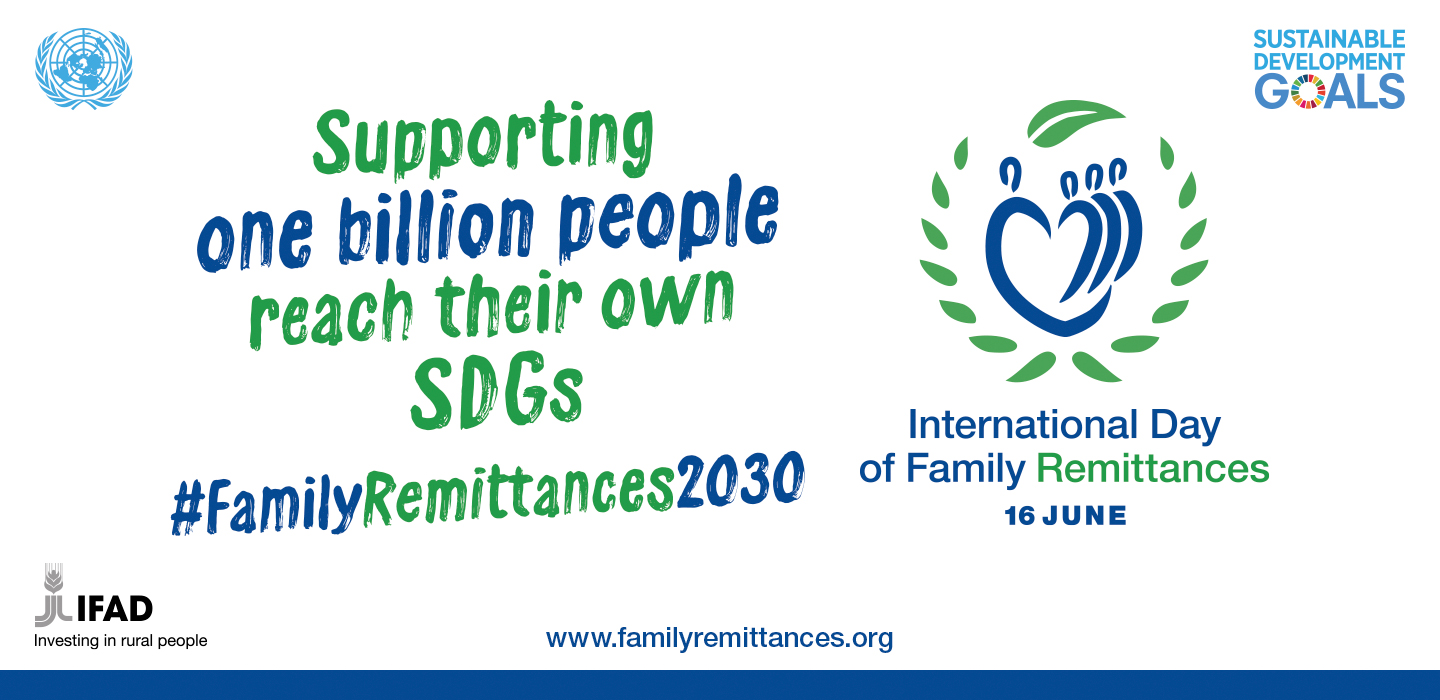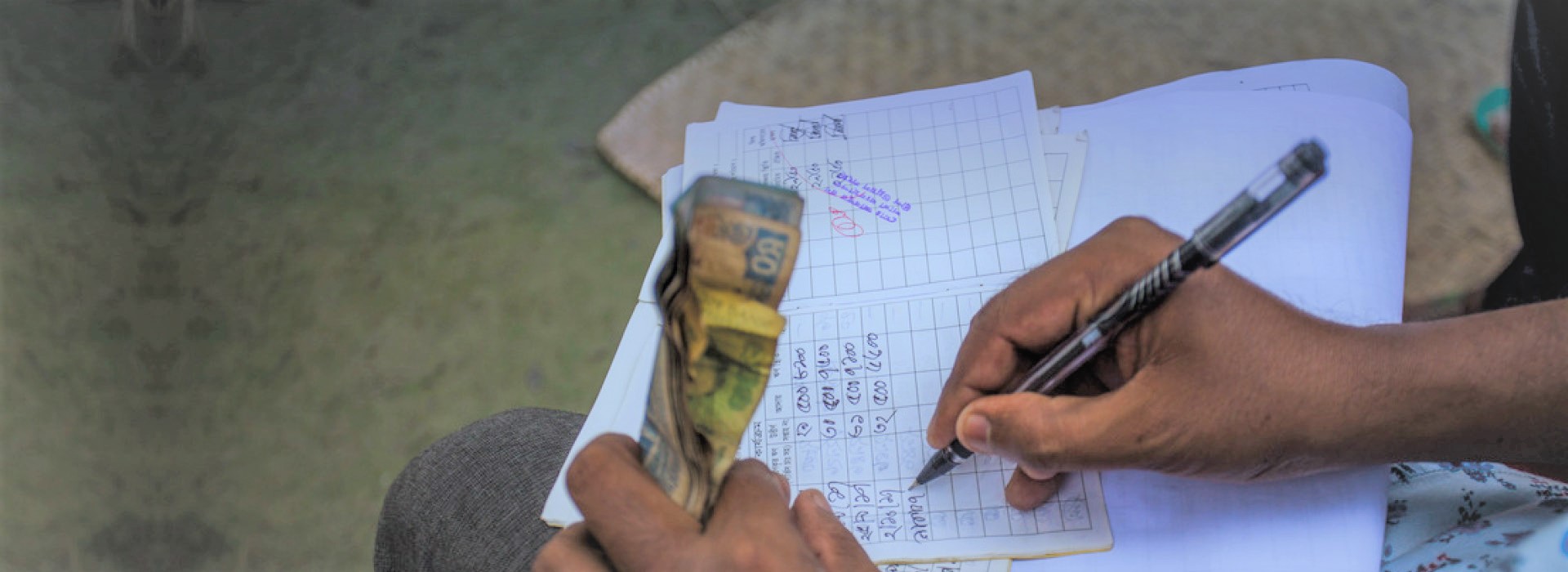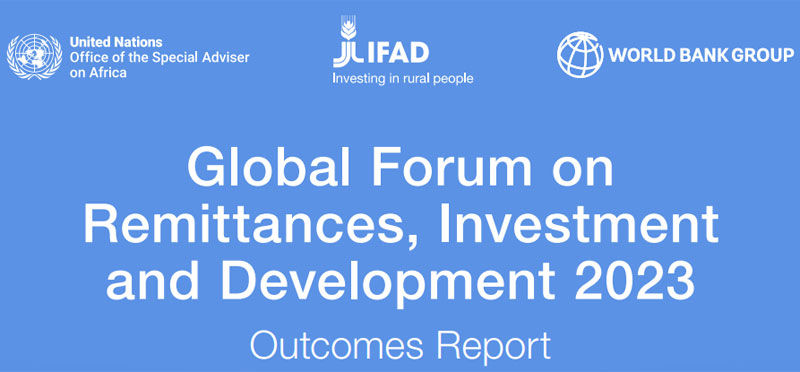Financing Facility for Remittances

The Financing Facility for Remittances
Menu Display
FFR
Maximizing the impact of remittances on development
Remittances and development
Remittances are a crucial contribution to the well-being of migrants’ families and communities back home. They help lift millions of migrant families out of poverty, and allow them to improve their access to health, education and housing.
In 2023, over 200 million migrant workers sent US$669 billion to 800 million family members in low- and middle-income countries.
Maximizing the impact of remittances
Since 2006, IFAD's multi-donor Financing Facility for Remittances (FFR) maximizes the impact of remittances on development and promotes migrants' investment in their countries of origin.
With almost 70 projects in over 50 countries, the FFR promotes innovative investments and transfer modalities, supports financially inclusive mechanisms, enhances competition, provides financial education and inclusion, and encourages migrant investment and entrepreneurship.
Research and partnerships
The FFR conducts dedicated research on global and regional remittances flows. Its Sending Money Home reports provide an overview of trends and opportunities in different remittance markets, and analyse costs, regulations and main actors in the ecosystem.
The FFR is highly involved in global and regional processes on remittances and development, including the Global Forum on Migration and Development, the G20 Global Partnership for Financial Inclusion and the Global Remittances Working Group.
Events
The IFAD-led Global Forum on Remittances, Investment and Development (GFRID) Summits bring together stakeholders across sectors to create partnerships and synergies. It is one of the actionable tools to implement the Global Compact on Migration (objective 20).
The FFR coordinated efforts towards formal adoption of the International Day of Family Remittances (16 June) by the United Nations General Assembly. The day raises awareness of the fundamental contribution of migrant workers not only to their families and communities back home, but also to wider sustainable development in their countries of origin.
Initiatives
Co-financed by the European Commission, the Platform for Remittances, Investments and Migrants’ Entrepreneurship (PRIME) maximizes the impact of remittances, advances digital financial inclusion, and fosters economic opportunities and sustainable development in migrant workers’ countries of origin.
PRIME Africa finances and supports innovations, partnerships and scalable products that promote cheap and fast remittance transfers in seven African countries.
PRIME Central Asia promotes faster, safer and cheaper remittance transfers in Kazakhstan, Kyrgyzstan, Tajikistan and Uzbekistan.
In parallel, the FFR is implementing the Diaspora Investment in Sustainable Rural Youth Entrepreneurship in Mali which supports investments from the Malian diaspora to their home country.
Stay updated
Get weekly updates on remittance markets by subscribing to our newsletter. For more information, contact [email protected].
The FFR is co-financed by the European Union, the Grand-Duchy of Luxembourg, Spain’s Ministry of Foreign Affairs, the Swedish International Development Cooperation Agency and the German Agency for International Cooperation for the GFRID Summits.
Contacts
Asset Publisher

Frédéric Ponsot
Senior Technical Specialist on Remittances, Diaspora and Inclusive Finance




Leonard Makuvaza
Remittances and Inclusive Digital Finance Officer (South Africa, The Gambia)




Spotlight
Asset Publisher
GFRID Summit 2023: Outcomes Report
This report outlines key findings and actionable outcomes for both remittances and diaspora-impact investments.
Related news
Related news
Migrant Contributions for Development Call for Proposals 2024 for Uzbekistan
Through its Financing Facility for Remittances, IFAD is pleased to launch the Migrant Contributions for Development Call for Proposals 2024 for Uzbekistan.
Migrant Contributions for Development Call for Proposals 2024 for Tajikistan
Leveraging remittances to foster financial and digital inclusion, and support the sustainable reintegration of migrant returnees for local economic development in rural areas.
Migrant Contributions for Development Call for Proposals 2024 for the Kyrgyz Republic
IFAD’s multi-donor Financing Facility for Remittances (FFR) is pleased to launch the Migrant Contributions for Development Call for Proposals 2024 for the Kyrgyz Republic.
Related events
Asset Publisher
The GFRID Summit 2023
IFAD and the UN Office of the Special Adviser for Africa are hosting the Global Forum on Remittances, Investment and Development (GFRID) Summit 2023.
GCM Talks: Remittances, Diaspora and the Sustainable Development Goals
This webinar will launch the International Day of Family Remittances (IDFR) campaign and will set the stage for the upcoming Global Forum on Remittances, Investment and Development (GFRID) Summit 2023.
Remittances and their role in building resilience to improve food security in Africa
Remittances contribute hugely to the economic health and social development of developing countries – IFAD and IOM know this well. For this reason, the two agencies are teaming up at COP27 in Sharm El-Sheikh to highlight the importance of these payments.
Related stories
Asset Publisher
13 reasons why remittances are important
Remittances continue to matter more than ever, particularly in rural areas where they count the most and provide further opportunities towards rural transformation. Here are 13 reasons why.
Helping remittances reach rural areas in Moldova
For some time now, it has been difficult to find well-paid work in Moldova. Most of the good jobs available are concentrated in the cities, resulting in significant migration out of the country’s rural areas.
11 reasons why remittances are important
Every year, on 16 June, the International Day of Family Remittances (IDFR) is observed to raise further awareness on the abnegation and sacrifice of migrant workers, who support their families and communities of origin through the money they send back home, particularly in these times of crisis.
Related publications
Asset Publisher
GFRID Summit 2023: Outcomes Report
This report outlines key findings and actionable outcomes for both remittances and diaspora-impact investments.
RemitSCOPE Africa Report 2023
This report uses the latest data to give an overview of remittances into and throughout Africa, looking at the drivers, trends, impact and potential.
RemitSCOPE: Ghana Country Diagnostic
This Ghana country diagnostic was prepared in accordance with the PRIME Africa goals.
Related videos
Related videos











